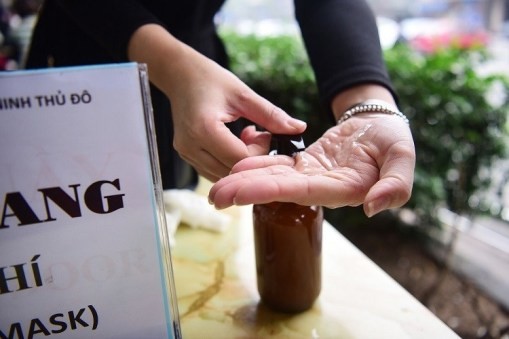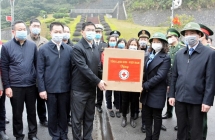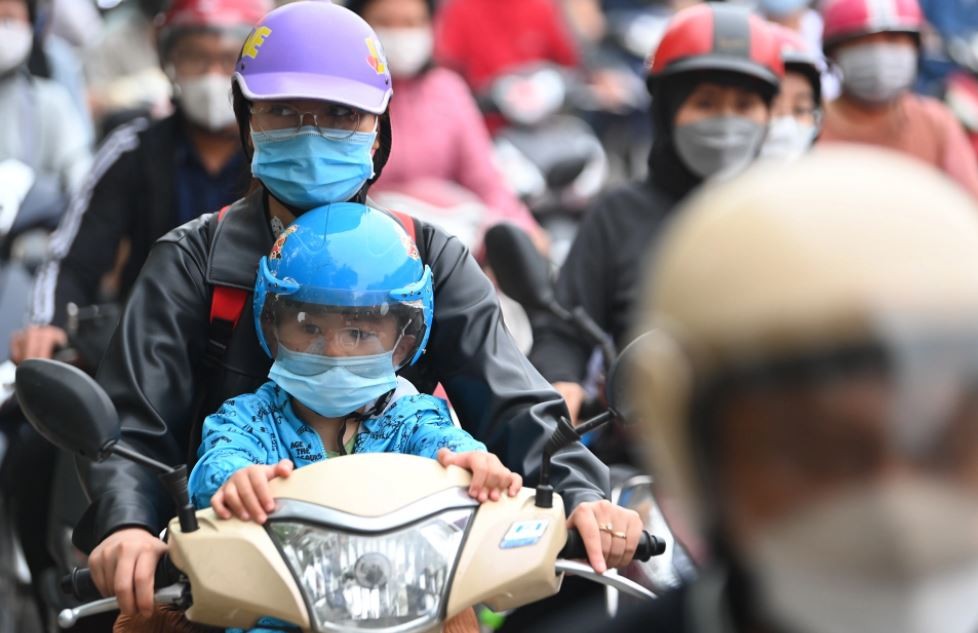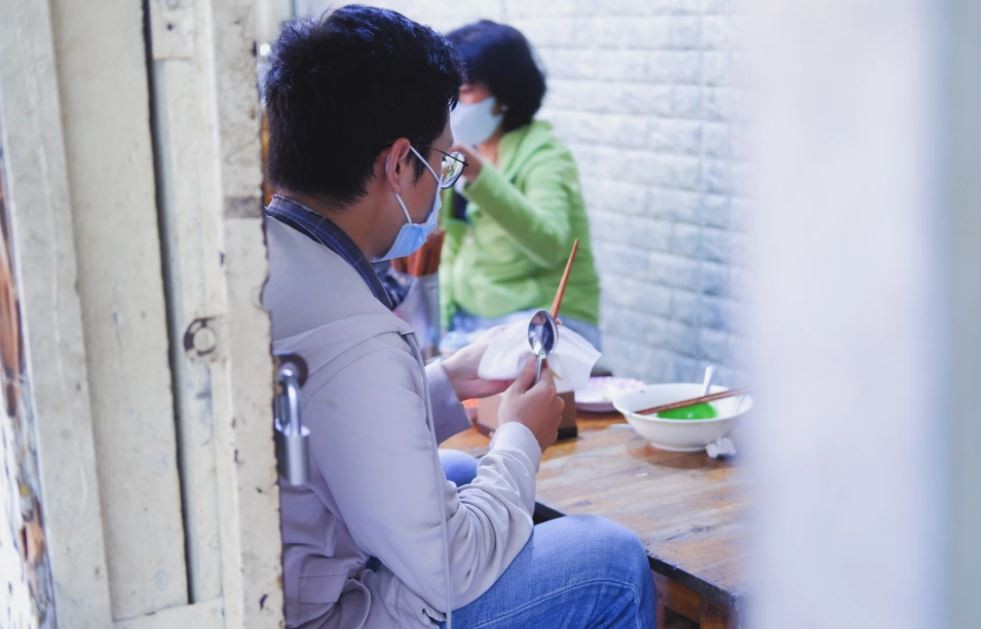Do hand sanitizer actually help prevent people from contracting coronavirus?
| Vietnam's Lang Son province assists Chinese region in nCoV fight | |
| Coronavirus outbreak: Vietnam confirms two more cases | |
| Hot and humid weather may end nCoV: Experts |
 |
| File photo of a woman using hand sanitiser. |
With nCoV all over the news these days, everyone’s talking about good hygiene and taking precautions by wearing masks and using hand sanitisers.
So it probably comes as no surprise that you might have spotted a few posts and articles on your social media feeds regarding the latter – specifically on making your own DIY sprays with various concoctions that often include some essential oils, rubbing alcohol and even aloe vera gel to soothe skin.
The rationale is that as long as it contains alcohol, it’ll kill germs and stop the virus in its tracks… right?
But according to doctors CNA Lifestyle talked to, that’s not really the case – there’s a minimum amount of alcohol content needed for it to be effective and other ingredients don’t really contribute anything.
A legit hand sanitiser needs to have at least 60 per cent alcohol to be effective, said Dr Edwin Chng, the medical director of Singapore-based Parkway Shenton.
Dr Natasha Bagdasarian, a consultant with the Division of Infectious Diseases at National University Hospital, also chipped in by pointing out that “ingredients like essential oils don’t provide reliable protection from these viruses.”
As for using rubbing alcohol – with some solutions containing 60 to 90 per cent alcohol – that’s pretty strong, but not good for your skin.
“Using full-strength rubbing alcohol on your hands could cause dryness and cracking of the skin,” said Dr Bagdasarian. “It is better to use an alcohol-based hand sanitiser as they are specifically formulated for the skin, and may contain emollients or moisturisers.”
ALCOHOL-BASED PRODUCTS AND WET WIPES
What about turning to alcohol-based products as substitutes for hand sanitisers, such as mouthwash and liquor?
Mouthwashes may indeed contain antimicrobial agents including chlorhexdine gluconate and triclosan, said Dr Bagdasarian, but it’s best not to use them as a hand sanitiser even in a pinch. “The amount of effective cleaning agents may not be consistent with the concentrations needed for cleaning your hands thoroughly," she emphasised.
Furthermore, most brands of hand sanitisers also contain other germ-killing agents such as benzethonium chloride, benzalkonium chloride or povidone-iodine for an effective job, said Dr Chng.
Meanwhile, using wet wipes to disinfect your hands may not be that effective either because they’re meant for cleaning environmental surfaces, said Dr Chng.
The same goes for baby wipes. "They generally do not contain sanitising chemicals and sufficient alcohol level as that is too irritating to a baby's skin," he said.
SOAP AND WATER IS YOUR BEST ALTERNATIVE
So what’s your best bet if you really can’t find a hand sanitiser? “Wash your hands with old-fashioned soap and water for 20 seconds or the time it takes to sing Happy Birthday twice,” said Dr Bagdasarian.
In fact, the Centers for Disease Control and Prevention in the US noted that soap and water are more effective than hand sanitisers as “people may not use a large enough volume of the sanitisers or may wipe it off before it has dried”.
More than 30,000 infections
The official Chinese death toll from the coronavirus outbreak rose on Friday (Feb 7) to 636, with the government saying total infections had climbed past 30,000, AFP reported.
The toll was raised by 73 new deaths from the epidemic, the National Health Commission said in its daily update.
Another 3,143 new cases of infection were confirmed, bringing total infections in the country thus far to 31,161, it said.
The central province of Hubei where the virus originated continued to be hardest-hit, accounting for 69 of the new deaths reported in the 24 hours to Friday.
Of the reported infections, more than 4,800 of those people were in serious condition.
The number of confirmed infections in China could still grow significantly, with the health commission saying that more than 26,000 other people were "suspected" of having contracted the virus.
| Novel Coronavirus: How to Stay Safe Concerns are growing about the coronavirus behind a fast-spreading epidemic in the community. Here are safety tips to protect yourself and your family to avoid the virus. 1. After using the toilet, put the toilet lid down before flushing to avoid spreading germs. 2. Keep hands clean at all times. Perform hand hygiene frequently, especially before touching your eyes, mouth or nose, before handling food or eating, after going to the toilet, after touching public installations such as escalator handrails, elevator control panels or doorknobs, or when hands are contaminated by respiratory secretion after coughing or sneezing. 3. Maintain drainage pipes properly and pour about half a litre of water into each drain outlet (U-traps) at least once a week, to ensure environmental hygiene. 4. Home should be cleaned thoroughly at least once per week with 1 in 99 diluted household bleach, leave for 15-30 minutes and then rinse with water. For metallic surface, disinfect with 70% alcohol. |
Recommended
 World
World
India strikes back at terrorists with Operation Sindoor
 World
World
India sending Holy Relics of Lord Buddha to Vietnam a special gesture, has generated tremendous spiritual faith: Kiren Rijiju
 World
World
Why the India-US Sonobuoy Co-Production Agreement Matters
 World
World
Vietnam’s 50-year Reunification Celebration Garners Argentine Press’s Attention
 World
World
"Will continue offering our full support to Indian govt": US FBI Director after Pahalgam attack
 World
World
"Great Leader": JD Vance Lauds PM Modi During His India Visit
 World
World
Trump’s Tariff Pause: A Strategic Move from “The Art of the Deal”?
 World
World





